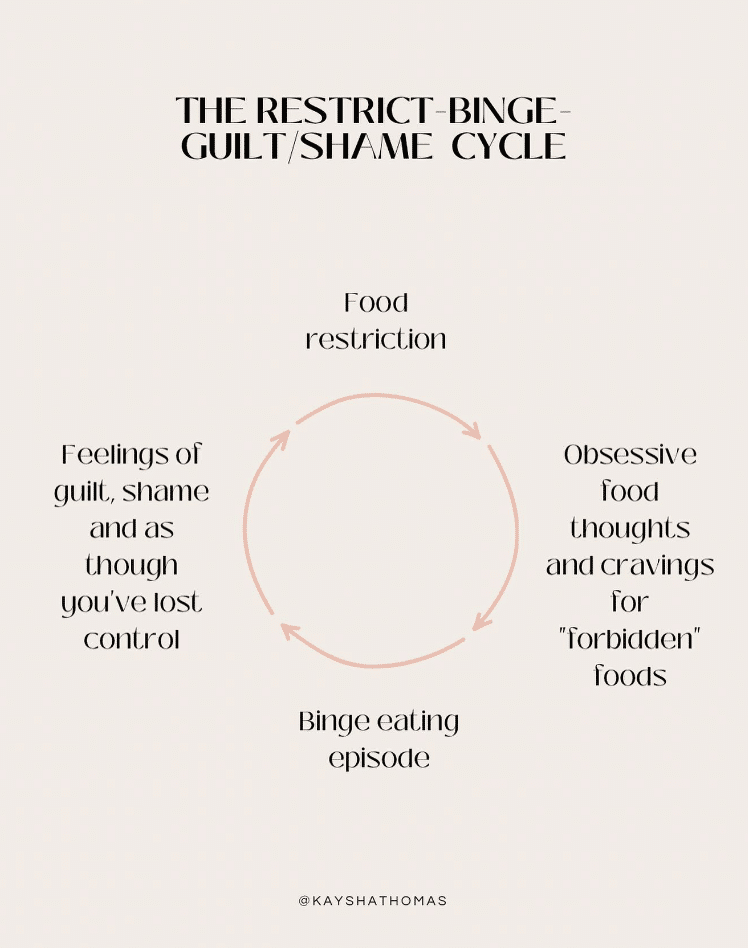Feelings, such as shame or guilt, can be deeply rooted in an eating disorder, and can be powerful barriers to recovery. It’s essential to understand how they impact your journey towards healing. If you’re finding yourself in this headspace today, these gentle reminders may be what you need to hear.
Eating disorders are extremely debilitating mental illnesses. Anyone, of any age, gender or background can suffer from an eating disorder. They do not discriminate, yet unhelpful stereotypes and judgements can cause many people’s illnesses to go undetected.
Individuals with eating disorders can be incredibly high-functioning despite the severity of their illness, often maintaining a full-time job whilst secretly struggling. We frequently hear from clients and individuals in the community about how isolating, shameful and secretive eating disorders and their related behaviours can be, and these can create barriers to people receiving the support they need and deserve.
Eating disorders are not about the food but are rather about feelings. Let’s look a little deeper…
Why is shame painful?
Shame is so painful to the psyche that most people will do anything to avoid it, even though it’s a natural emotion that everyone has.
Shame is how we feel or judge ourselves as individuals, in relation to having done something we perceive as wrong. The cognitive model views shame as a self-evaluation in reaction to others’ perception of ourselves, and to our failing in meeting certain standards or rules. When this happens – and we feel no freedom from the shame – we can internalise the experience, perpetuating the feelings of failure. In all, this can hurt.
Internalising shame can play a role in the development of an eating disorder. As we mention in our treatment page, an eating disorder is an example of a ‘maladaptive’ coping mechanism: which is something that has developed to support an individual to cope, but to the detriment of their mental and physical health. Coinciding with shame and eating disorders are symptoms of:
- perfectionism
- low self-esteem (we have a blog on how you can nurture self-love)
- people-pleasing tendencies
- guilt
How does guilt play a role?
Guilt is the feeling of having done something wrong (say, straying from a food rule you set for yourself).
Guilt is often experienced alongside shame, especially in the context of eating disorders.
When an individual feels ashamed or guilty, it’s easy to slip into a negative thought pattern that perpetuates the eating disorder. For example, when looking at Kaysha Thomas’ Restrict-Binge Guilt/Shame Cycle (below), guilt may arise after a binge or a purge, which can lead to feelings of worthlessness, shame, and failure. This can create a barrier in an individual seeking support or to get back on their recovery path, as this “slip up” may fuel their beliefs of not being worthy of assistance, and so, the cycle repeats.

What’s important to remember is that we are not our emotions – we ‘experience’ emotions. This is why it is essential to acknowledge and to become aware of feelings, such as guilt and shame, throughout recovery. For without this compassionate awareness, they will not go away.
3 tips on how to overcome shame and guilt:
Firstly, the first step is to acknowledge that these emotions are a natural part of the healing process. It’s normal to feel ashamed or guilty, and you don’t need to beat yourself up for experiencing them.
The second step is to challenge the negative thoughts that come with shame and guilt. Instead of berating yourself for a setback, try to approach the situation with compassion and understanding. Recognise that recovery is a journey, and setbacks are a natural part of that journey.
Finally, it’s essential to seek out support from others. Talk to a therapist, join a support group, or confide in a loved one. Having a supportive community can help you navigate the difficult emotions that come with eating disorder recovery and remind you that you’re not alone.
On healing…
As conflicting as this may sound, we understand that eating disorders serve a purpose. They may have carried you through a difficult time. They may have felt like the only thing that could understand you.
It is ok to understand and to realise that, actually, an eating disorder may have felt like the safest thing for you, when perhaps your world felt uncertain. There is no shame in wanting to feel safe.
However, living a life with an eating disorder is not in fact safe. This is why recovery is essential for you to live a fulfilled life. So, when on your recovery journey, rather than dismissing or avoiding reasons why an eating disorder may have developed, and rather than ignoring valid emotions – such as shame or guilt – try to invite curiosity and compassion for the reasons why they have shown up.
Make your recovery your rediscovery. A setback doesn’t have to define your journey. You can press the reset button at any time.
“I have to remind myself that I am not a failure. Recovery may be hard but it does not mean that it’s impossible. I know I can ‘reset’ and get back to recovery.”
Orri Alumni Client










